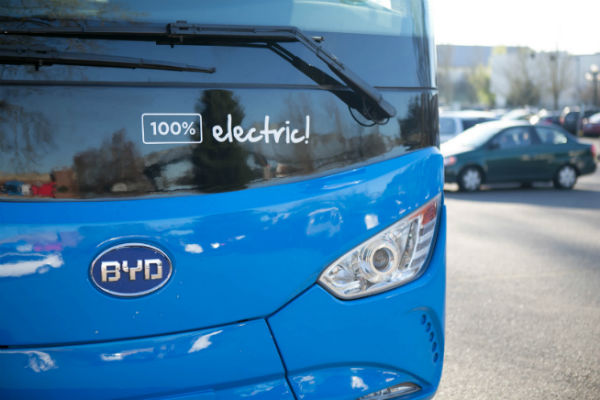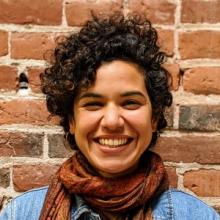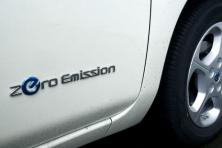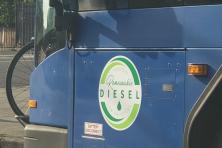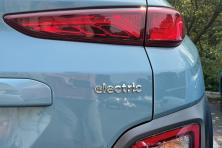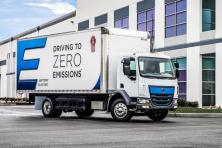We are reaching out at a time that we are all called to take action and stand in solidarity with the Black Lives Matter movement. To truly ensure a habitable and thriving world for everyone and future generations, we must be holistic in our approach and transform our goals to encompass the intersectionality of the racial justice movement and other movements for equity and justice. As we move forward in our work, it's crucial that we connect the dots and intertwine the goals of the climate movement with racial justice movements that Black, Indigenous, and communities of color have long been leading in order to create a world where we all can thrive.
Why are so many environmental advocates focused on transitioning to electric-powered cars, heavy-duty trucks, buses, and even farm equipment? A big reason is because our fossil-fuel reliant transportation system (the way we mostly get around and transport goods) nationally and in our state represents the largest source of climate and air pollution, harming human health and our chance at a stable climate. Shifting to electric vehicles economy-wide is one of the fastest ways we can clean our air. However, we do not experience harmful air pollution equally, so we must ensure that communities facing disproportionate toxic air pollution are prioritized for transportation programs and infrastructure that improve air quality.
Multnomah County reported that because of our toxic air, “[m]ost Oregonians face an increased risk of cancer because of air pollution, but residents in Multnomah County — and people of color specifically — face a risk higher than in any other place in the state, and at a rate well above the national average.” This grim reality is a result of historic racist policies and practices like redlining, urban renewal districts, abuse of eminent domain, and inner-city highway construction, where racist policies have restricted and forced communities of color to move into concentrated, high-traffic areas next to highways, ports, railroads, and industrial facilities. This has led to communities of color and low-income communities breathing in some of the most toxic air in the country and consequently suffering from a disproportionate level of respiratory and cardiovascular illnesses along with higher infection and death rates from COVID-19 (a textbook example of environmental racism).
We must develop comprehensive transportation electrification projects that improve the health and economic inequities created by the transportation system while responding to and prioritizing the needs of low-income communities and communities of color where community leaders have been fighting for safety, efficiency, clean air, affordability and accessibility for decades.
Unjustly built transportation infrastructure and services have worsened air quality, access to economic opportunities, and public health outcomes particularly in low-income and communities of color. So what can we as climate and transportation advocates seeking a transition to electric transportation infrastructure do about it? Environmental and transportation justice advocates have long been fighting “to level the playing field” by advocating for a transportation system that is safer, more efficient, more affordable, less-polluting and more accessible for their communities who have been explicitly harmed and underinvested in.
Our key clean transportation priorities
As advocates, it is our responsibility to address our unjust and racist built systems and demand racial and social equity in all sectors, including the transition of our transportation system from fossil fuels to electricity. A sustainable and equitable transportation system can and must be led by community needs and implemented with the following equity priorities to “level the playing field” for low-income and communities of color whose communities have been harmed and excluded from transportation investments for too long. Such a system must include*:
- The reduction of air and climate pollution through transportation electrification, cleaner fuels, and reducing vehicle miles traveled while prioritizing benefits in low-income and communities of color.
- An equitable transportation system, that is affordable, accessible, efficient, and safe.
- Enhanced economic opportunities through transportation policies and programs for low-income and communities of color. These include:
- Equitable connection and access to employment opportunities, education, and other essential services; and
- Quality jobs in the transportation sector with fair labor agreements and family-sustaining wages
There are so many opportunities to prioritize equitable outcomes and build a sustainable and equitable transportation system with our communities and partners including public health, labor, transportation, environmental justice, racial justice, climate change and more. In the coming weeks and months, we will explore new transportation opportunities in Governor Kate Brown’s Executive Order 20-04 (Oregon’s Climate Action Plan) and beyond, and how we can ensure that these policies and programs are implemented in a manner that elevates and addresses community needs while prioritizing clean and just transportation solutions.
*Adapted from The Greenlining Institute’s Mobility Equity Framework
